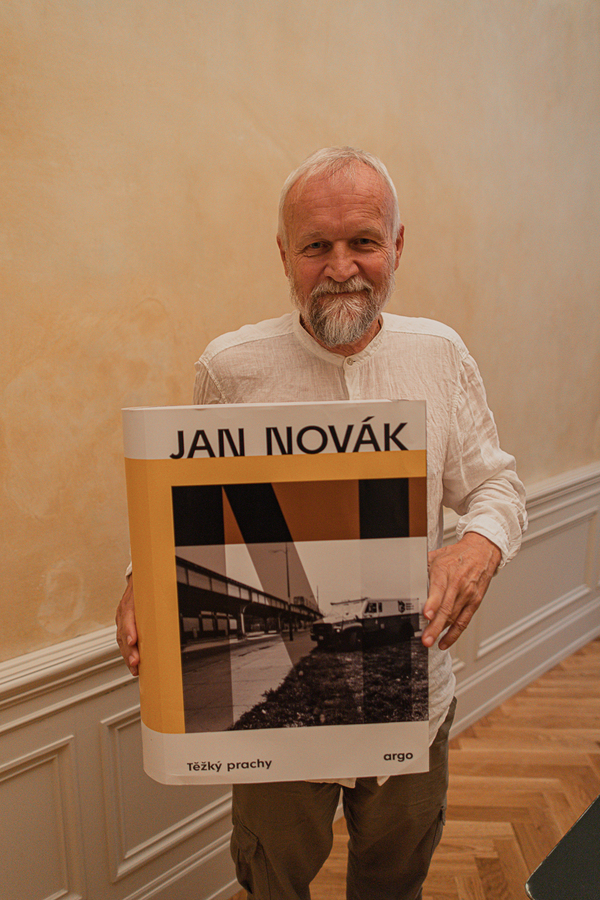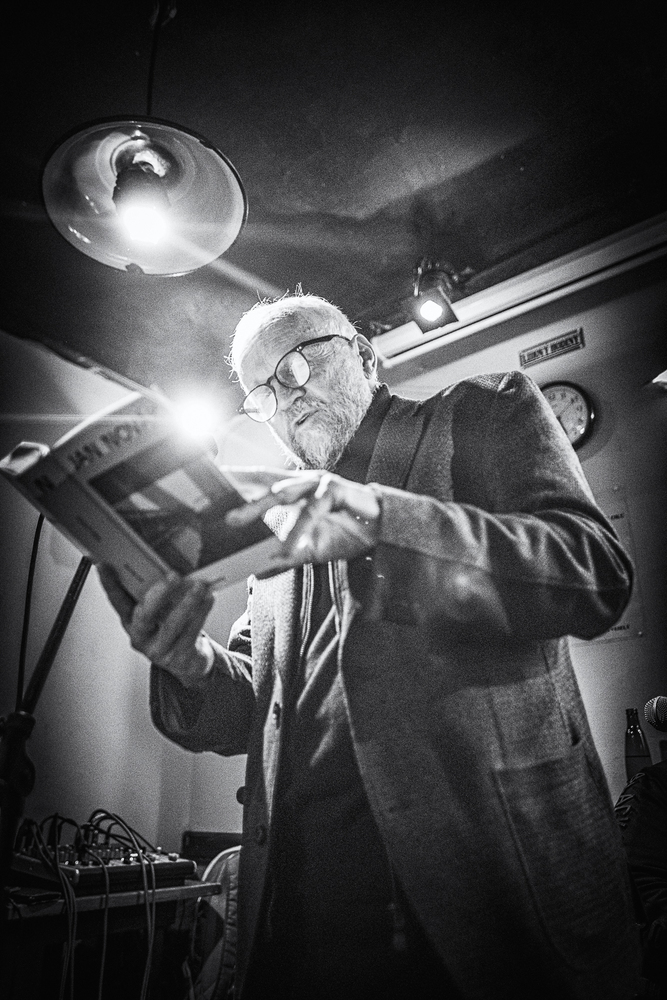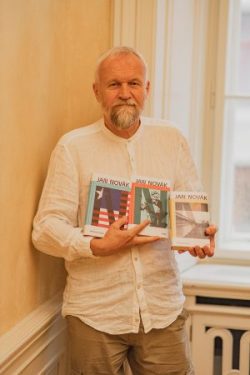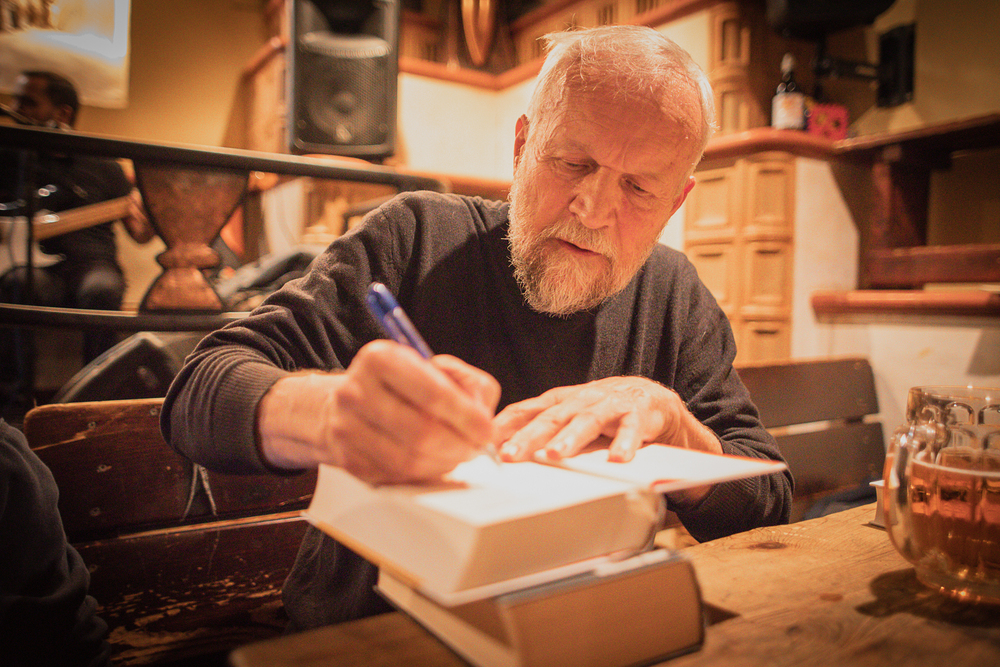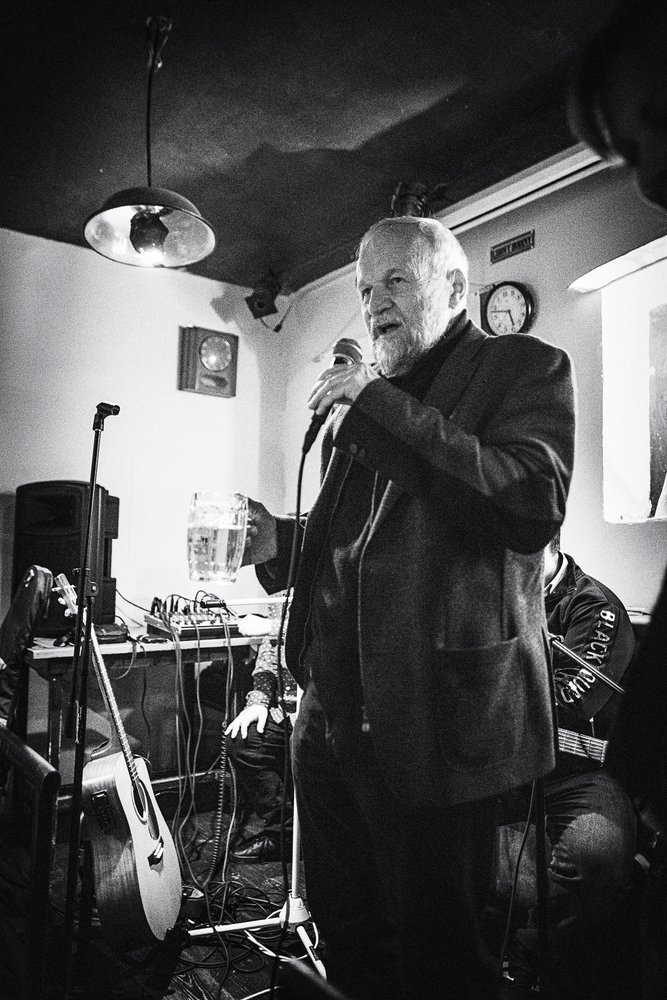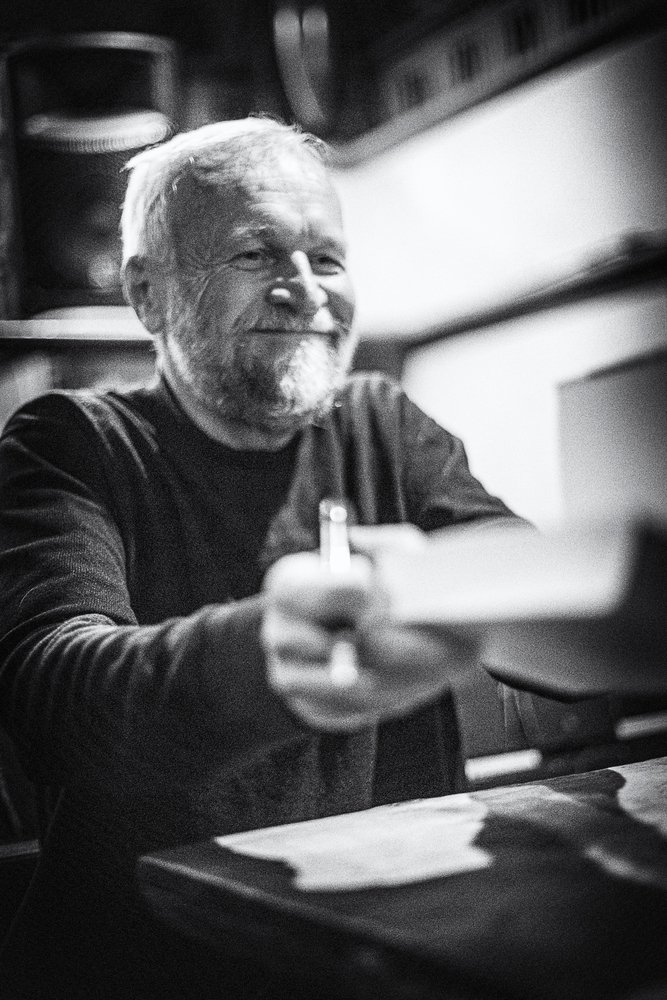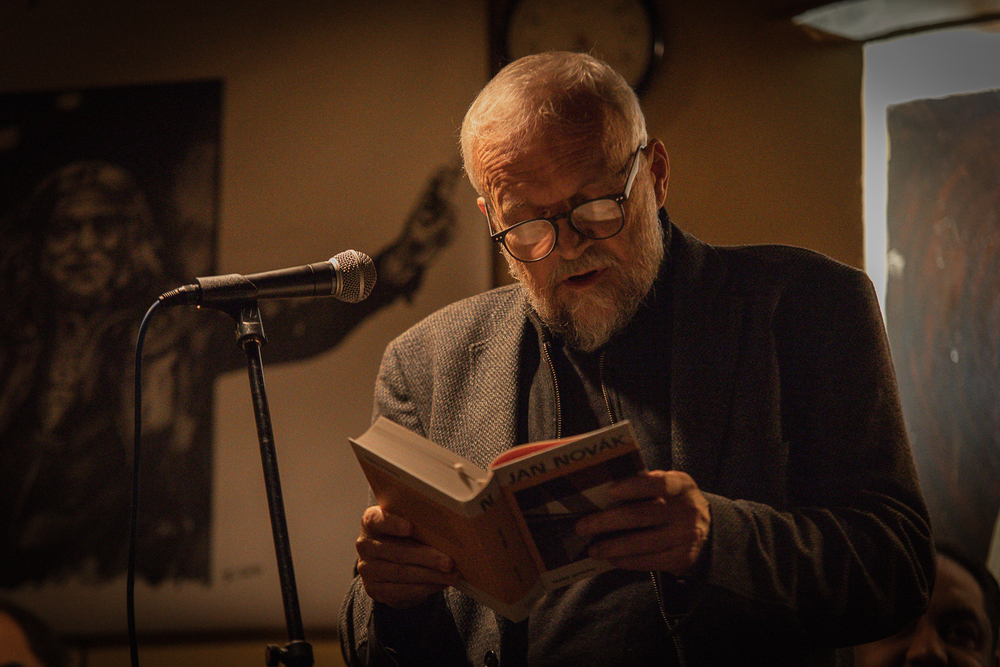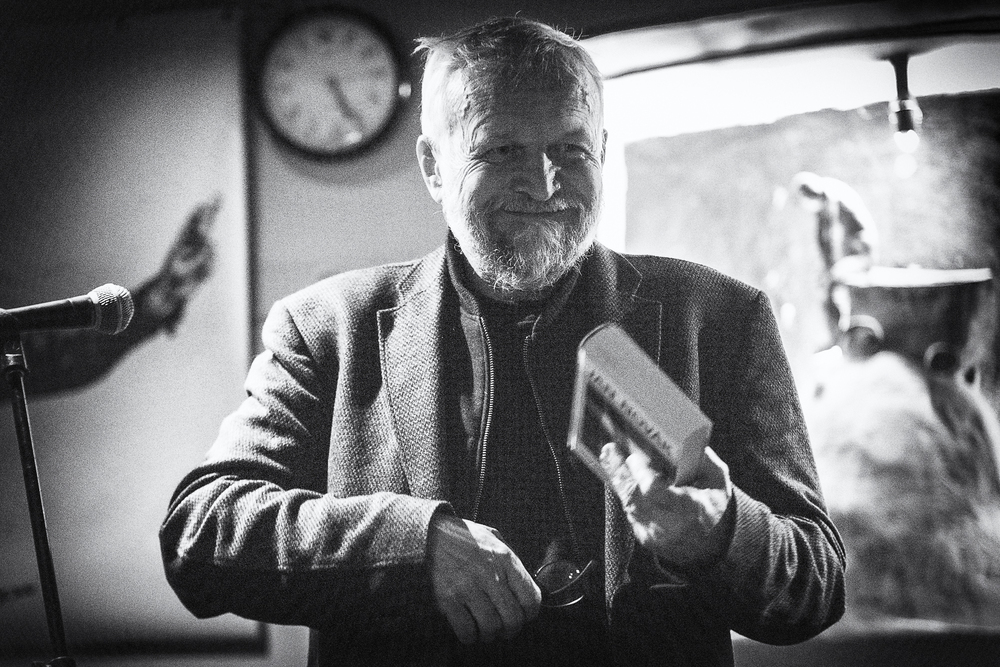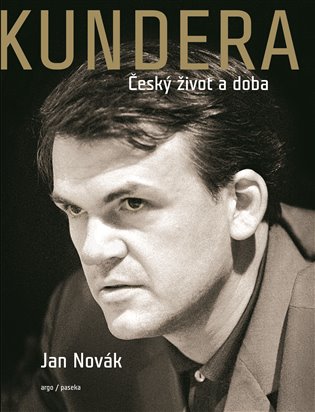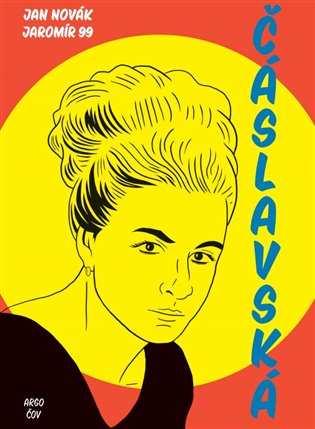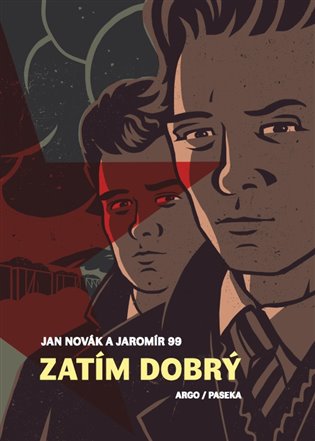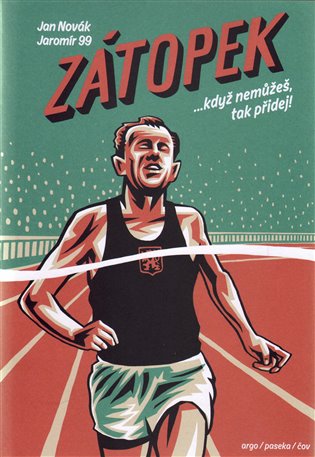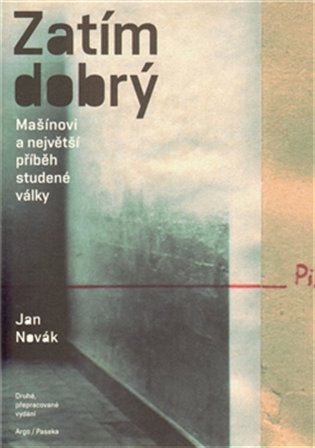Jan Novák
Jan Novák (b. 1953) is a prominent Czech-American author, translator and documentary filmmaker. His family emigrated to the U.S. in 1969, and nowadays he lives in Prague and Berlin. He gained recognition for his first novel The Wyllis Dream Kit (1985), which won the Carl Sandburg Prize and was in the wider nomination for the Pulitzer Prize. He later co-authored Miloš Forman’s autobiography Turnaround (Co já vím?, 1994), which was translated into 22 languages, while his “true novel” Zatím dobrý (2004, published in English as So Far So Good, 2018) was awarded the Magnesia Litera, the greatest literary prize in Czechia.
Novák also collaborated with Jaromír 99 on two graphic novels, Zátopek (2016) and Zatím dobrý (2018), which have been translated into six languages.
This year Argo has published his three partly autobiographical novels The Wyllis Dream Kit, Grandpa and Underpaid, but Armed.
CARL SANDBURG AWARD (1985)
FRIENDS OF LITERATURE AWARD (1985)
MAGNESIA LITERA AWARD (2004)
JOSEF ŠKVORECKÝ AWARD (2007)
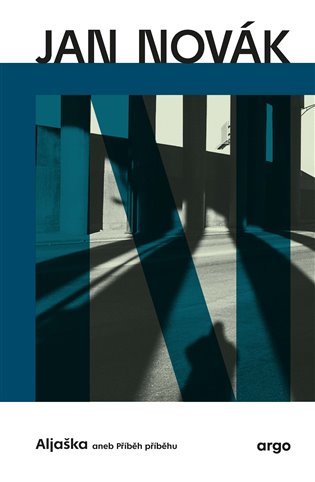
Alaska
September 2024, 176 pages
Available material: English synopsis, English sample
An émigré writer draws on his experiences as one of the millions of residents in Chicago
A slim prose by Jan Novák, titled Alaska, offers – true to its subtitle – a “story about a story.” The author reflects on a screenplay he wanted to write based on a note in a Chicago newspaper, and masterfully conceived characters come to life in his hands. The result is a surprisingly gripping and oddly striking/moving story of a frustrated, lovesick driver at a Chicago bakery who, after being fired, descends into murderous madness and seeks revenge on his former boss. This storyline intertwines with author’s personal memories, blending stylized “fiction” with stylized “reality” so seamlessly that it’s impossible to distinguish where one ends and the other begins. As is customary with Novák’s works, Alaska is read in one breath—and readers feel a compelling urge to return to it even after finishing.
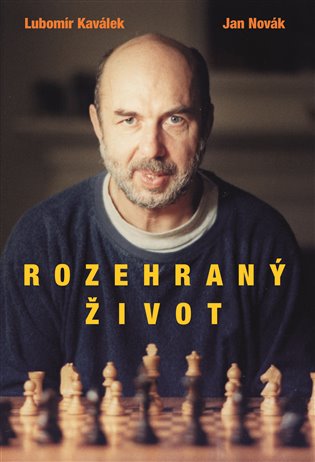
Middlegame
May 2023, 480 pages
Lubomír Kaválek was one of the most significant Czech chess players of all time—his memoir, titled Middlegame, offers a fascinating insight into his life. Kaválek began his auspicious chess career in Czechoslovakia, achieving international grandmaster status, and moved to the USA following the 1968 Warsaw Pact invasion, where his career continued to climb. He became a three-time US champion, represented his new homeland at international tournaments and Chess Olympiads, and made the world’s top-ten list in the mid-1970s. In 1972, as Bobby Fischer’s second, he participated in “The Game of the Century,” a major Cold War match in which an eccentric American famously defeated the reigning world champion, USSR’s Boris Spassky.
Kaválek tells his story very engaging and humorously while being considerate of readers who may not know chess rules. He omits lengthy analyses of chess games while managing to convey the thrill of chessboard battles to all. The memoir was prepared for publication by Jan Novák, a long-time friend of Lubomír Kaválek.
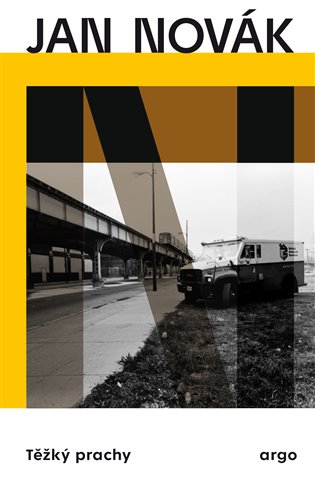
Underpaid but armed
October 2022, 416pages
Shocking scan of contemporary America as well as a three-dimensional self-portrait of the writer himself
For three years, Jan Novak lugged cash around the city of Chicago. It was heavy; five hundred dollars in quarters weighed thirteen kilos. The largest sum that he ever delivered as an armored carrier of United Armored Services was twenty-four million dollars, though most of the time, he had around three million in the armored truck. After ten years of making a living by his pen, he chose this job so that he could write about it, but he got more than he had bargained for: the only friend he’d made in the business, a Bosnian Muslim Senad Omanic, ended up being shot in the head point-blank on Christmas Day. The robbers made off with sixty thousand dollars; Omanic was nearly robbed of his wallet again by the ambulance staff on his way to the hospital; he survived it all; the crime was never solved… Novak seizes the palpitating, crazy-making, hard-to-fathom experiences he gathered in Chicago ghettoes with his typical narrative virtuosity. His stories from the world of „money men“ offer a close-miked rendering of a looney, cash-hating, robbery-dreaming clan and lively portraits of the author’s coworkers who put their lives on the line for ten dollars an hour just so they could walk around the city with a gun on their hip. What gradually emerges is a shocking scan of contemporary America as well as a three-dimensional self-portrait of the writer himself.
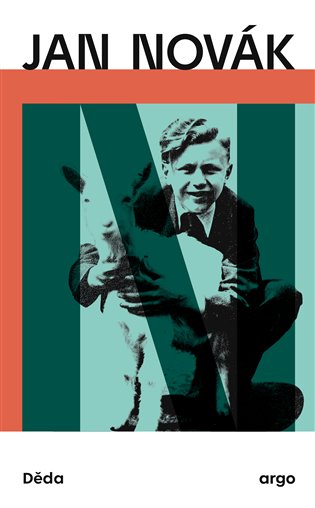
Grandpa
July 2022, 229 pages
Moving portrait of “grandpa the stone heart” and “grandma the king cobra” and other members of the author’s family
In his novel Grandpa, Jan Novak breaks into his family’s vault for another story, as the lapidary title suggests. This time he wraps his narrative around his maternal grandfather, a small-time farmer caught up in the totalitarian maelstrom of Central European history. Broken by his losing fight to retain the family farm through Communist collectivization, the old man fascinates his grandson as much as he frightens him, and so the boy decides to earn his grandpa’s love by avenging the public wrongs that have been done to him. He spooks a herd of heifers and bullocks and sends it stampeding over the illiterate chairman of the village collective, causing a long chain of unintended consequences. The book is composed with Novak’s characteristic panache: a string of short, sharply drawn chapters gradually congeals into a moving portrait of “grandpa the stone heart” and “grandma the king cobra” and other members of the author’s family, all the while rendering the collisions of the larger-than-life and the smaller-than-life history in a village near the Elbe River during the 1950’s. The literary brilliance of the text and the author’s narrative mastery was cited by the expert jury that awarded Jan Novak the prestigious Josef Skvorecky Award for the novel.
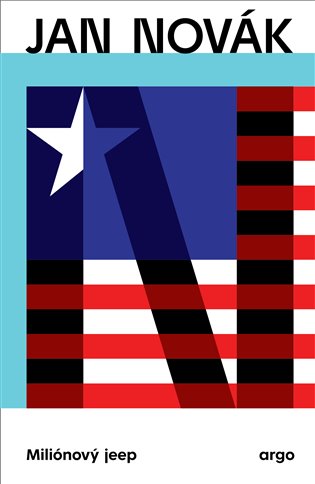
The Wyllis Dream Kit
March 2022, 358 pages
Grand and tragic parable, the human existence as it is really lived
Jan Novak’s first novel belongs among the best works of Czech post-war literature. It is also one of the best things that this author wrote. Told in his unpretentious, almost inconspicuous style, full of well-made sentences and chapters with fine narrative arcs, it renders the life journey of its hero (whose inspiration was the author’s own father), which starts during the German occupation when the hero’s father is arrested by the Gestapo and the teenage protagonist seizes this opportunity to sell his hated violin and buy a pair of kangaroo-leather soccer shoes… The novel goes on to describe his various, mostly profitable improvisations under the Communist regime, followed by a short intermezzo in an Austrian refugee camp, before it reaches its tragic climax in American exile. Always trying to game the system in very different worlds, and finally trying to game life itself, Novak’s hero takes on all sorts of roles, some more and some less plausible. And in the end, his schemes failing again and again, he remains the quintessential outsider.
As Vaclav Havel notes in his enthusiastic afterword to the novel, Novak’s unsentimental, and yet observant and empathetic approach to writing, brings to the book “that sort of an understanding view from above, which shows an unpretentious interest in the human existence as it is really lived”, exhibiting “something very shy, and almost – in spite of all the roughness – aristocratic.” And it’s on account of this authorial attitude, Havel goes on to say, that Novak’s The Wyllis Dream Kit turns into “a grand and tragic parable”.
